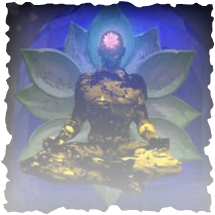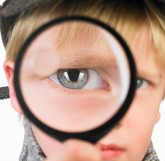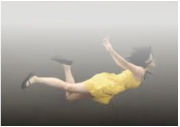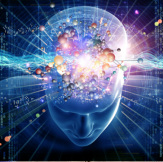TLDS Guest Article:
Self Awareness in Lucid Dreams
|
Bio: Kerry McGlone is a Lucid Dreaming enthusiast, and creator of http://www.dreamlucidly.info/ As a frequent researcher, she has attained knowledge and experience on lucid dreams, resulting in an enhanced understanding and having the passion to share knowledge with others. If you're interested in becoming a lucid dreamer, feel free to give Dream Lucidly a visit! |
Commentary From The Lucid Dream Site
McGlone is absolutely correct in this article to highlight the importance of fostering self-awareness. When we focus on a thing - anything - that focal point of our consciousness becomes more vivid. When the mind aims the light of conscious attention onto itself, the very nature of Mind and its operations become brighter. Lucid. It is interesting to consider just what it is we are talking about in regards to the dream self…
Normally, we identify the physical body as “our-self.” The boundary between I/Not-I can be fuzzy if we strongly identify with our possessions and loved ones and work, but usually it is understood that what you really are is the skin-bag and all of its contents. However, in a dream the question of “what/who am I?” is a different animal. Obviously, we are not one and the same as our dream-bodies - the dream-body is a mental representation of the Self just like it is when waking, except while awake the impressions we have of our bodies in space are more or less veridical to an actual being moving around in a shared, objective reality. The dream-body impression is almost entirely hallucinatory. So, who and what is the dreamer?
The answer to this identity enigma is that the Self in dreams is not confined to a typical meat suit. Yes, there is usually the “You” of waking familiarity in your dreams, but the Dream Self is really comprised of every thought, emotion, and perception which occurs in the dream. The reason you can move objects with your mind in dreams, or change complete scenes or summon new characters is because You Are the Dream! All of the Dream Matter, every foe and friend, it’s all You. The implications for this are only limited by your own imagination.
In McGlones Method #4: Imagine a Dream Scene, she touches on the affective valence (emotional direction) in dreams and how paying attention to and attempting to facilitate emotions can be a powerful tool for lucid dreamers. I want to add that we should not be surprised if things get more than a little weird when practicing lucid dream induction, maybe even scary. As brought up repeatedly on TheLucidDreamSite, the Dream Generation System (DGS) evolved as a means to prepare for situations which threaten our well-being. When people are stressed-out the DGS is more active and knowledge of this relationship allows for the deliberate modification of REM-Sleep. The only way to predictably instigate the DGS to become more active is by challenging your comfort zones in waking life or otherwise stimulating the REM circuitry (by way of sleep-cycle disruption, dietary supplements, etc.). And dreams will be strange, lucid or not. My advice is to expect a little bit of uncomfortable situations surrounding your lucid dream experiments. This can manifest as frightening dream imagery, negative emotions in dreams, Sleep Paralysis, Sleep Talking, and more. But no matter what happens, what is ultimately important is how you deal with any of these issues when they come up. And how should you deal with these? - Bravely. Rest assured that dreams are simulations. And you are in control. (You will really feel more in control if you have a pre-meditated plan on how to deal with the epi-phenomena of lucid dream practice, as described on TheLucidDreamSite and elsewhere).
- D.L. of TheLucidDreamSite.com





